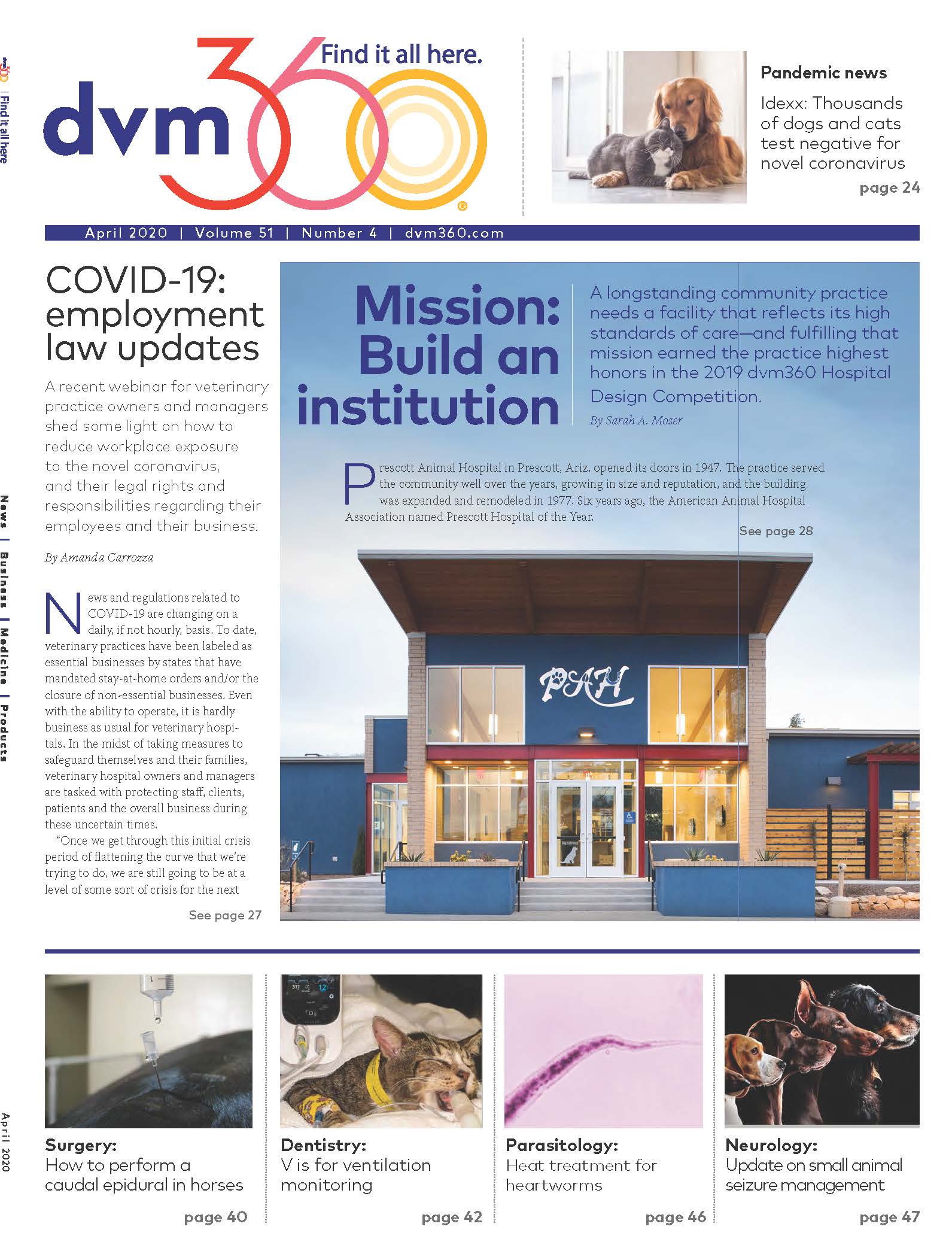FDA issues update on possible tie between grain-free diets and heart disease
Its investigation is ongoing and the agency hasnt changed its recommendation to pet owners whose pets are not ill.
LIGHTFIELD STUDIOS/stock.adobe.com

The FDA has issued an update to its investigation into reports of dogs developing dilated cardiomyopathy (DCM) while eating certain pet foods, according to a release from the agency. Since first announcing it would investigate the issue in July 2018, the agency has analyzed reports it has received from January 1, 2014, through November 30, 2018. This update doesn't include reports received in December 2018 and January 2019 because of a loss of appropriations during the government shutdown in that time period, and it was unable to continue its investigation at that time, the release notes.
The FDA has taken a multi-faceted approach to its investigation, collaborating with other groups in the animal health sector to collect and evaluate information about the DCM cases and the diets the affected pets were eating prior to becoming ill. As of now, it has not identified specific recommendations about changes to the diets of dogs that are not displaying clinical signs of DCM, but encourages pet owners to consult their veterinarian directly for advice about their pet's diet, the release notes.
The investigation has included the following steps to date:
- > Analysis of reported cases to search for correlations between diagnosed DCM cases and what the dogs did or did not eat.
- > Collaboration with the Veterinary Laboratory Investigation and Response Network (Vet-LIRN) to test blood, serum and tissue samples from affected dogs.
- > Collaboration with Chesapeake Veterinary Cardiology Associates (CVCA) to collect case summaries as well as blood, serum and tissue samples of dogs diagnosed with DCM to see if there are unique factors that separate diet-associated DCM from genetic-associated cases. The agency is also reviewing echocardiograms of dogs that are not showing clinical signs of DCM to evaluate the significance of early changes in heart function.
- > Consultation with board-certified veterinary nutritionists to identify factors such as nutrient bioavailability and ingredient digestibility that may contribute to the development of heart disease.
- > Examination of ingredient sourcing, processing and product formulation with pet food manufacturers.
Between January 1, 2014, and November 30, 2018, the FDA received 300 reports of DCM, the release notes-294 were canine patients and six were feline. Of those cases, 276 (273 canine and three feline) of them were received after the notification about the FDA's investigation was made public in July 2018. Some of the reports involved more than one animal affected from the same household, the release says.
According to the agency's documentation there are some dog breeds that are known to have a genetic predisposition to DCM, typically large and giant breeds and cocker spaniels. But the reports the FDA has received span a wide range of breeds, many that don't have a known genetic predisposition. While it has received reports of cats with DCM, the low number of reports-only 10 since January 2014-has led the FDA to focus on cases in dogs only.
In the cases where the dogs ate only a single primary diet and did not eat multiple foods, excluding treats, 90 percent reported feeding a grain-free food, the release states. About 10 percent of cases reported feeding food containing grains, some of which were diets considered to be vegan or vegetarian. A large proportion of the reported diets in the DCM cases, both in the grain-free and grain-containing cases, contained peas and/or lentils in various forms (whole, flour, protein) as a main ingredient, i.e. listed within the first 10 ingredients and before vitamins and minerals. These diets were commercially available kibble, canned and raw foods, as well as home-cooked diets, the release says.
The agency notes that it appreciates the assistance from pet owners and veterinarians that have submitted case reports, but that due to a high volume of reports, it can't respond to each report individually, though each report is valuable and becomes part of the FDA's investigation. Veterinary professionals and pet owners are encouraged to report both symptomatic and asymptomatic cases of dogs suspected to have DCM connected to diet using the electronic Safety Reporting Portal or calling their state's FDA Consumer Complaint Coordinators.
For more details about the number or reports that have been made to the FDA, visit it's DCM Investigation webpage.
The agency states that it will continue to provide updates on the progress of this investigation and will alert the public about significant developments, the release says.
